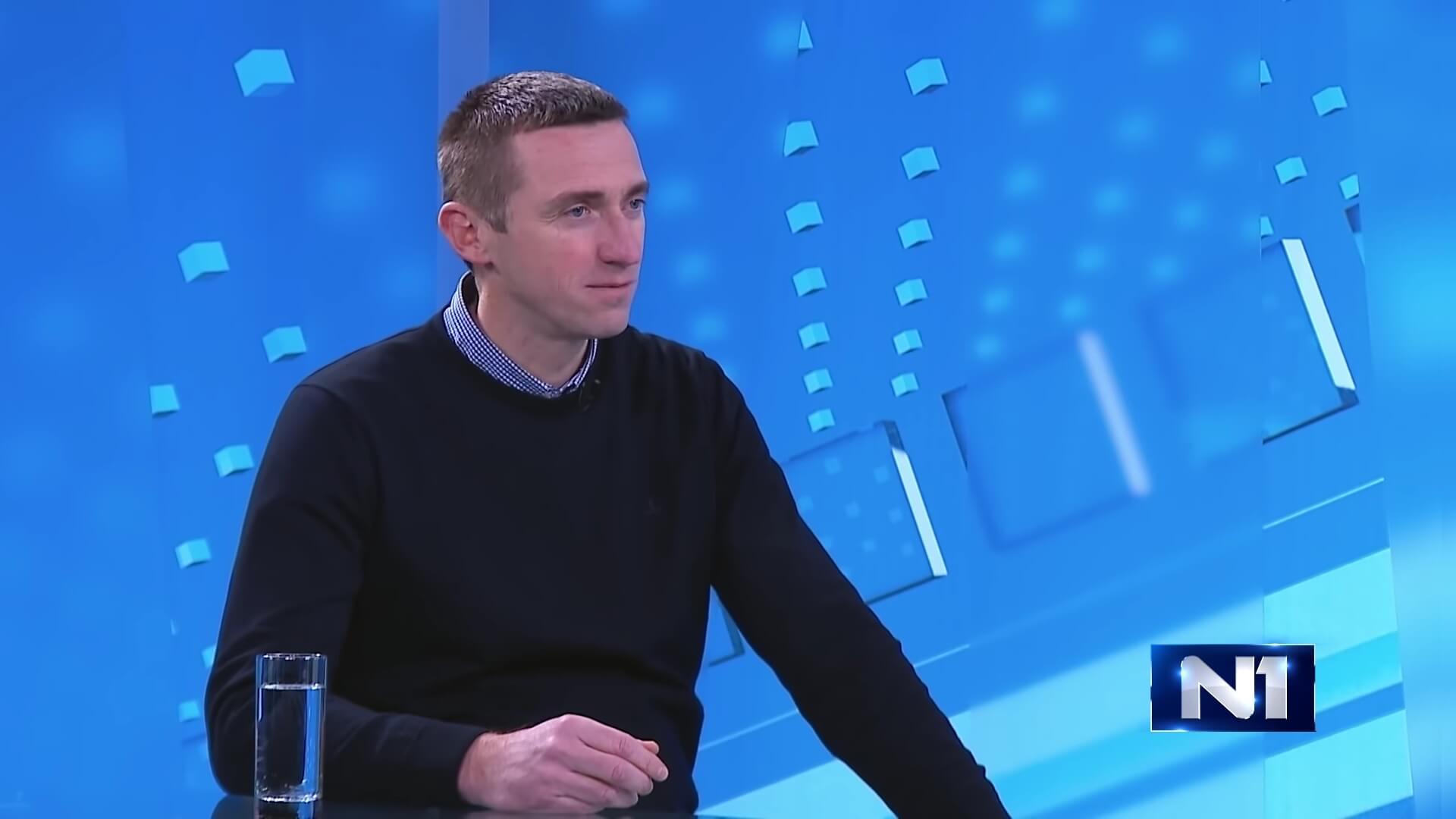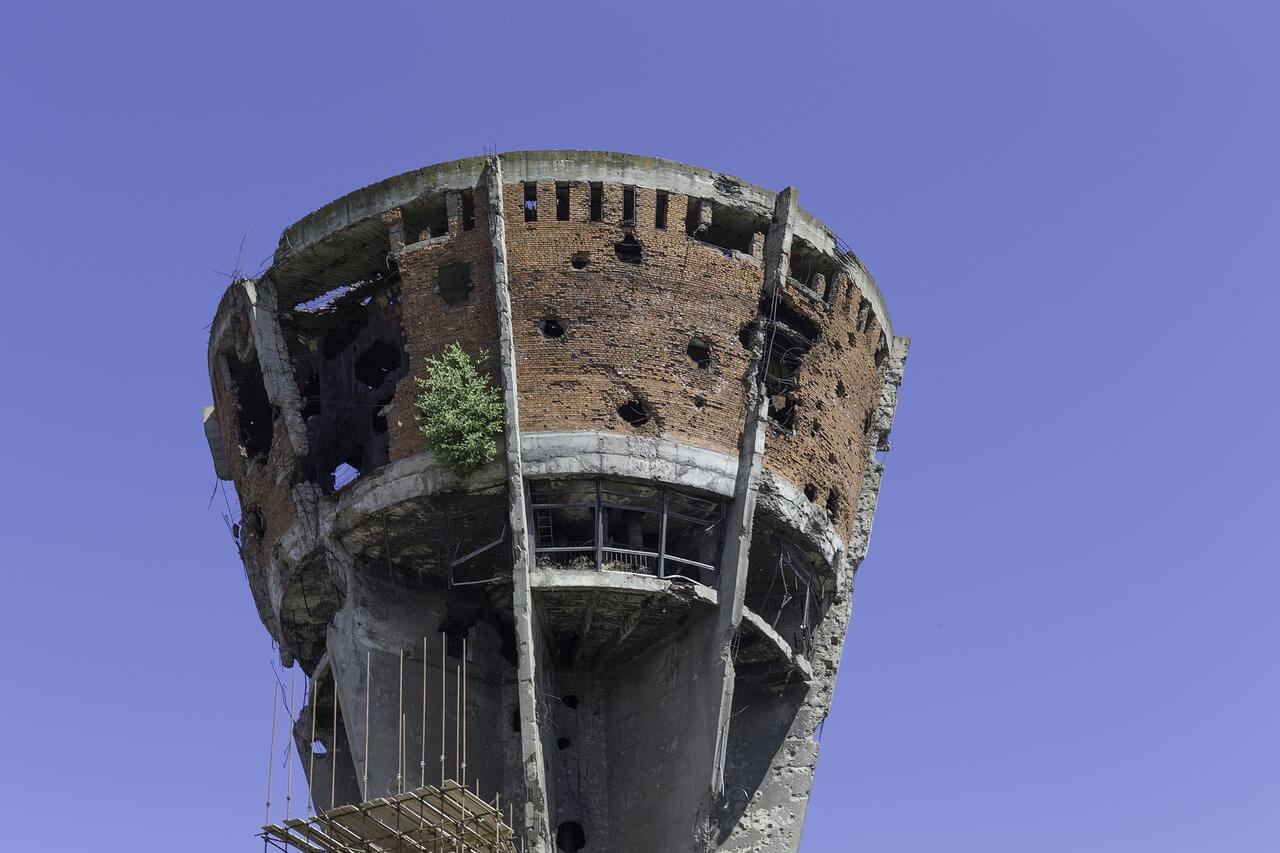MP Jeckov: There Are Definitely No Segregated Schools in Croatia
ZAGREB, 7 July, 2021 - MP Dragana Jeckov of the Independent Democratic Serb Party (SDSS) said on Wednesday that there are "definitely" no segregated schools or exclusively Serb schools in Croatia, let alone a segregated state education system.
Jeckov made the statement in parliament following statements in the media by "quasi-reformists of minority education," primarily the one conducted in the Serbian language and Cyrillic script.
"Certain myths need to be debunked," she said, including the one that Serbs in Croatia have separate schools and that they are being taught from textbooks from Serbia, based on the so-called Serbian programme.
"In Croatia, there are definitely no segregated schools, there are no exclusively Serb schools, let alone schools that are segregated from the state education system," said Jeckov.
The truth is that students go to school within the same building, that they usually go in the same shift, that they have extra-curricula activities together. The only difference is that members of the minority community are taught in their mother tongue and only if their parents decide so.
"Model A is used by the Italian and Hungarian and Czech minorities and they enjoy their minority rights to a greater extent than Serbs because their schools are registered as minority schools, unlike those for Serbs," she said.
She said that the Serb minority is not asking for more than others but it hasn't achieved the level of rights that others have, and that there is no alternative to education in the mother tongue and script.
MP Stipo MIinarić, of the Homeland Movement (DP) retorted that she was not telling the truth.
"Schools are segregated. Children are segregated from kindergarten age to secondary school. That is not good for Vukovar, the Serb community, the Croatian people, for anyone. Why are children being segregated?" he asked.
For more about politics in Croatia, follow TCN's dedicated page
Ending Segregated Education in Vukovar? Mayor Ivan Penava Announced an Idea
June 25, 2021 - Is there any possibility of ending segregated education in Vukovar? Mayor Ivan Penava announced Serbian and Croatian education could merge in school and kindergarten levels, but more details are yet to be revealed.
The start of the week saw interesting news that surprised many. As reported by N1, Ivan Penava, the mayor of Vukovar, announced Croatian and Serbian classes and kindergartens could merge together.
Vukovar, often referred to in Croatia as the „Hero City“ for the heavy blow it suffered in the 90s war Croatians refer to as Homeland War, still has a lot of ruins as memories of that ugly past. In the light of national tensions among Serbs and Croats, the segregation of kindergartens and different shifts in schools for Serbian and Croatian classes seem to be a solution to keep the peace.

screenshot/ N1
Good idea but more talks needed?
„In Vukovar, parents do not choose the model of education that is imposed by politics, it is nowhere written in public“, said mayor Penava, as reported by N1.
Penava, a former member of the Croatian Democratic Union (HDZ), despite earning a new term in the recent local elections as an independent candidate, enjoyed support from Miroslav Škoro, runner-up candidate for Zagreb mayor elections, and the leader of the Homeland Movement (DP) supports Penava's idea.
„I lived in America for a number of years, in Hungary, I traveled the world... what is the difference between Serbian and Croatian mathematics? Is Argentina in Serbian in the northern hemisphere, and southern in Croatian? I don't get it“, said Škoro adding that segregation was done in malice with a tendency to divide children from the start.
„In Vukovar, the symbol of defense had priorities. Reconstruction of the water tower, and certain moves Penava did well in his last term (he wouldn't win elections if he hasn't), thinks that city needs to move on. I support him 100%“, concluded Škoro.
On the other hand, criticism is erected on national-level politics.
„I don't think that local officials are the ones who need to determine a way in which minority education will be conducted. Political trade is clear here, and I'm glad there is no longer just Serbian-Croatian trading coalition, but also another one“, said Dragana Jecov, a Croatian parliament member from the Independent Democratic Serb Party (SDSS) referring to the accusations of the right-wing that current coalition of HDZ and SDSS and is vile political trade.
Interior Minister Davo Božinović also said that while we need to work on erasing national, social, and political tensions, but this is a question that needs to be discussed more seriously.
Additionally, as N1 reported, the Ministry of Education pointed out that different models of education for Vukovar schools exist, and parents can choose which they find most suitable.
Accepting national differences or nationalistic uniformity?
Some improvements have indeed been seen in the city infrastructure, but Vukovar still remains a challenging place to live. Partly due to the tough economic situation, but also because of discrepancies among Serbian and Croatian residents. Earlier in June, there was even a violent incident when a 30-year-old Serbian member of the Grobari football fan group physically attacked a Croatian 13-year-old boy in front of a bakery for having a medicine mask with Croatian symbols.
„Sadly, this kind of thing happened too long in Vukovar, where people attack each other because of national disputes. Media aren't even introduced to some of these events. It is spread a lot, as evident by the constant police patrols around Vukovar high-schools where there are always police cars around“, said Vukovar police to Večernji List daily newspaper.
Such incidents, a misfortunate loose ends of the war, also come from the Croatian side. Earlier in May, a group of young men chanted anti-Serb slogans in Borovo Selo (close to Vukovar), a scene of heinous war crimes in the '90s), sparking condemnation from both president Milanović and the Croatian Government.
In that light, integrated schools might finally bring positive changes in regards to tolerance and peaceful life for Vukovar citizens. But again, not everyone sees the glass as half full.
Index.hr columnist Gordan Duhaček agreed in his column that Serbs and Croats don't need to go to separate shifts but warns how Penava isn't the guy that should unite them.
„Penava doesn't want to integrate Vukovar schools and end the troubling segregation in a way to ensure a better future for the whole city, but instead to impose his nationalistic, often anti-Serbian narrative as the official one. Penava wants that Vukovar Serbs bow down to his view of the Croatian state“, wrote Duhaček.
Duhaček also reminded the readership of the attempt and fail of the Danube International school that supposed to integrate pupils of both nations, an idea that spawned 16 years ago. But, the project failed, and Duhaček sees both Penava and SDSS leader Milorad Pupovac not feeling too sad about it.

Iconic Vukovar water tower, pixabay
Questions on details
At the end of the week, the situation seems more confusing than clear. Is class integration a good idea? Could it save money for the city financially? What are some actual details of merging Croats and Serbians into one class? Obviously, Škoro is right that 2+2=4 in any math class around the world. But, troubling questions appear in subjects such as language and history. Croats and Serbs sadly have their own, different interpretations of historical facts, particularly when it comes to the last war, and while the speakers of two languages perfectly understand each other, some words do differ, and there is a different accent and spelling in the two formal languages. So, how can these issues be resolved? Would those two subjects remain in different shifts while universal subjects such as biology, math, or physics will listen in one merged classroom? Or will there be a different curriculum that would present both Serbian and Croatian history, Serbian and Croatian literature in that way, making Vukovar pupils more knowledgable in those areas than other pupils in the country?
Or some curriculum consensus on history could be reached, one that would satisfy both the Croatian and Serbian sides and thus truly open a doorway to the better understandings of the two nations in the future in perhaps the most nationally torn city in Croatia?
Obviously, Vukovar city authorities have some tensions with SDSS, but the city also has an expert associate for the development of civil society and national minorities, Siniša Mitrović in one of the City's departments. Did Mitrović manage to gain input from the Serbian minority in Vukovar about this merge? And how fast could the whole thing be realized? This autumn or maybe a bit later?
These are important and interesting questions that can only be answered either by mayor Penava himself or perhaps Josip Paloš, the director of the Vukovar City Education Department.
„Mayor Penava is in a lot of meetings and on fields, and his schedule is full. We will sadly not be able to answer you by your Friday deadline, but we will contact you at the earliest convenience“, said the lady at the Vukovar City PR service when I called them (and E-mailed) with a wish to arrange and conduct a brief phone interview.
While this article may present the current issues surrounding segregated education in Vukovar, this TCN reporter hopes mayor Penava will share more details about his plan on ending segregation in Vukovar schools and kindergarten with joint classes. If done right, this move can indeed be the way to a better, more peaceful future for Vukovar citizens.
Learn more about Vukovar on our TC page.
For more about education in Croatia, follow TCN's dedicated page.
Milanovic Meets With Croat Reps from Serbia, Says is Willing to Visit Them
ZAGREB, October 5, 2020 - President Zoran Milanovic met on Monday with a delegation of Croats from Serbia who informed him of their activities in protecting and promoting the rights of Croats in that country, the conditions in which they operate and the problems they encounter.
According to a press release, President Milanovic received the president of the Croatian National Council (HNV), Jasna Vojnic, the council's vice president for Subotica, Ladislav Suknovic, and the president of the Democratic Alliance of Croats in Vojvodine (DSHV), Tomislav Zigmanov.
"HNV and DSHV representatives informed President Milanovic of their work in the past and activities to protect and promote the rights of Croats in Serbia as well as the conditions in which they operate and the problems they encounter," the press release said.
Milanovic supported their work and underlined that he expects the standards that Croatia applies in promoting the rights of national minorities to be equally applied to the Croat national minority in Serbia.
The President expressed his readiness to visit Croats who live in Serbia and in that way confirm Croatia's care for the Croat community in that neighbouring country. Milanovic said that respecting minority rights was and will remain an important criterion on the journey to European Union membership.
For the latest travel info, bookmark our main travel info article, which is updated daily.
Read the Croatian Travel Update in your language - now available in 24 languages


